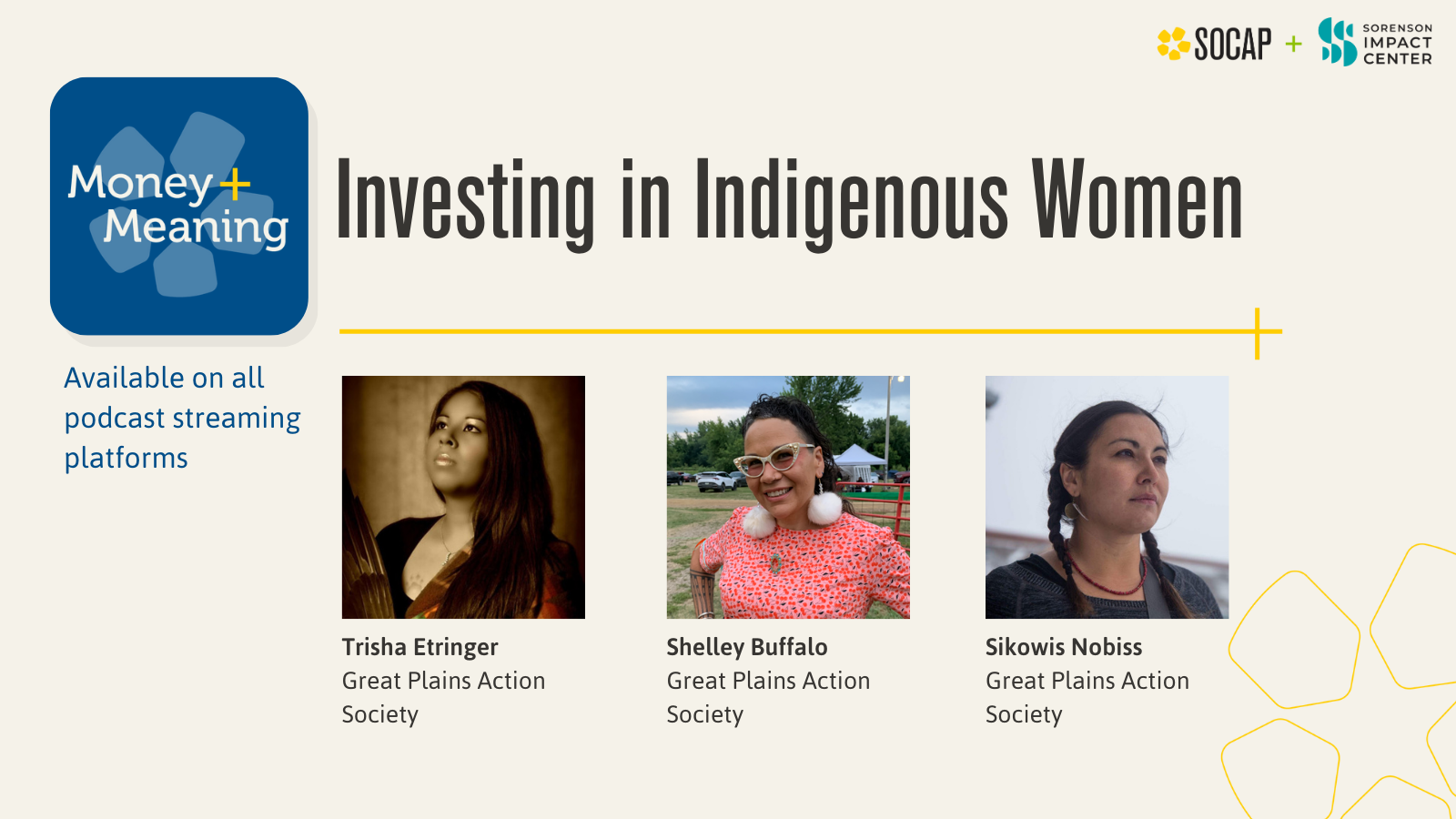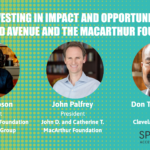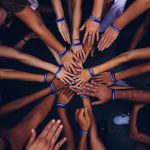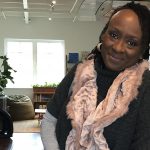Through traditional ties to the land and roles as food providers for their communities, Indigenous women have thousands of years of history as stewards of the environment. Since colonization disrupted that legacy, Indigenous women in the U.S. and Canada have faced high rates of murder, disappearances, suicide, and sexual and domestic violence.
This Money and Meaning episode features a powerful SOCAP22 session with Trisha Etringer, Shelley Buffalo, and Sikowis Nobiss of the Great Plains Action Society, who call for action and support to end the missing and murdered Indigenous women crisis. Pulling from their personal and professional experiences, they share how the private sector can move toward a more just and regenerative economy by recognizing, trusting, and investing in the work of Indigenous women.
Over time, this loss of Indigenous knowledge and practices has harmed local communities and contributed to the climate emergency and systemic inequity, said Nobiss, Executive Director of the Great Plains Action Society. “So many of our women don’t get there,” she said. “They’re never going to sit here, they’re never going to be able to even comprehend some of these concepts because they’re living in abject poverty and serious violence.”
With grassroots programs and partnerships, the Great Plains Action Society is working to end the missing and murdered Indigenous women crisis to ensure Indigenous knowledge and practices continue for thousands of years, she said. “Indigenous visionaries and culture bearers need to be heard so we can usher in a regenerative economy,” she said. “This can be done if changemakers turn to Indigenous peoples, in particular Indigenous women.”
She pointed to research from Project Drawdown and the Indigenous Environmental Network that reinforces how the knowledge and practices of Indigenous women demonstrate the resilience and impact needed to address oppression and environmental crises. “Our viewpoint alone is a necessary step forward,” she said. “Indigenous women can help shift the global consciousness. However, so many of our women will never get there.”
As Director of Operations/MMIR Director at Great Plains Action Society, Etringer guides much of the grassroots approach to help empower communities and families in their work to protect Indigenous women. “We put our energy, we put our all into bringing this together,” she said. The collaborations include a Healing Justice Project, collaboration with the Malikah organization for Black and Brown women, and community efforts in the Sioux City, Iowa, and Omaha, Nebraska, area. With additional funding and support, these partnerships could be scaled to increase awareness, broaden their reach, and accelerate progress.
This includes Buffalo’s work with the Great Plains Action Society as Decolonial Pathfinder, where she has gained knowledge about First Foods, ecology, and land stewardship — wisdom that Indigenous women had passed down through the years but now has been disrupted by colonialism. “The missing and murdered Indigenous women crisis started 500 years ago. Targeting women was an intentional policy of colonization,” Buffalo said. “Because Indigenous women are the land. … That is our realm. That is what we are most connected to – the land and the water.”
By feeding their communities, Indigenous women served as the heart of tribal communities. “That type of powerful, powerful connection to the land as well as the heart of the economic health of any type of community system was the reason that the colonizers very specifically targeted women,” she said. “This is hundreds of years of missing and murdered Indigenous women and of having incredible rates of violence targeted at us.”
Now, Buffalo envisions a future where Native students have the opportunity to own land, where they can set up their own agricultural operations, plant ancestral seeds, and heal themselves and the environment. “That’s what seed rematriation and working with ancestral foods has done for me,” she said. “When I started working in seed rematriation, and I had my ancestral seeds in my hands, I realized that I had a connection to my grandmothers going back generations. … That’s what I want to propagate; I want to grow and share with my community, especially in a healing way.”
Listen to the full conversation on Investing in an Impactful Resource: Indigenous Women.
Don’t miss out! Subscribe to Money + Meaning on Apple Podcasts, Stitcher, TuneIn, Spotify, or anywhere else you find podcasts.
Listen to more episodes of Money + Meaning here.
Money + Meaning is the official podcast of SOCAP. The series aims to expand the conversation around impact investing and strategies to finance and support social change while stimulating innovative and valuable new partnerships across sectors.







